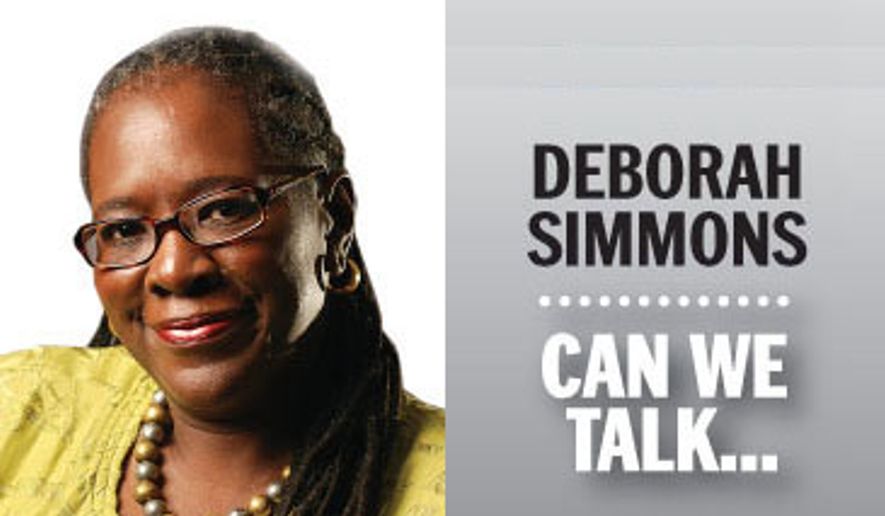ANALYSIS/OPINION:
A 23-year-old soldier is fatally stabbed while standing near a bus stop on the campus of the University of Maryland at College Park.
A 23-year-old singer is traumatized by a suicide bombing in England.
A 21-year-old rapper dies when the car she was traveling in collides with a second vehicle.
And those are but three headline-grabbing tragedies over the course of the past week.
Young people of the same generation. Young people whose family and friends are proud they chose straighter and narrower paths.
All too often, “breaking news” stories focus on the bad guys and gals — like Dylann Roof, who violently shed blood inside Emanuel African Methodist Episcopal Church in Charleston, South Carolina. Or a Hatfields-and-McCoys-type slaying in Spotsylvania, Virginia, that involved a neighbor killing his neighbor over a longstanding property dispute.
The suicide bombing Monday night in Manchester, England, was horrifyingly different. A terrorist group laid claim to the carnage, as usual.
What’s different is that it followed a concert headlined by Ariana Grande, America’s latest dancing-and-singing pop tart who is on the European leg of her world tour. For sure, terrorists like headlines and chaos. Unfortunately, many of the victims at the 21,000-seat Manchester Arena were adolescents, tweens and teens, and many of the children were there with their parents.
For her part, Miss Grande tweeted that the attack left her “broken.”
Parents, meanwhile, are broken too — whether they attended the concert or learned via the news coverage.
The moms and dads who were doing what moms and dads do: escorting children.
“What could be sweeter than that?” psychologist Renee Garfinkel said to me on Tuesday. (Disclosure: Renee writes an online column for The Washington Times, and I am one of the editors.)
In the aftermath, we search for victims and perpetrators. Mostly, though, we forget about the victims after they are released from the hospital or are buried and arrests are made. However, survivors can grieve long after the event itself.
And some of the advice about handling grief and loss can be misleading, Ms. Garfinkel said.
“There are no six tips to recovering from death, loss or trauma,” she said. “There are no rules to abnormal events, which can affect people for a long time.”
And, too, she said there are triggers, such as birthdays, anniversaries and holidays — normal events along the “natural order of things.”
The natural order includes the death of a truly sick loved one, as opposed to a fatal car accident.
The vehicular death of London Dior is an example. The young rapper was leaving a recording event when her vehicle hit another car and burst into flames in the intersection of Suitland Parkway and Forestville Road. By all accounts, Miss Dior, a pretty young thing, had a promising career.
The handsome young man at College Park did as well. Army 2nd Lt. Richard Collins III was with two friends early Saturday when a young guy approached him, told him to “step left” and fatally stabbed him.
Lt. Collins followed the path — the right path — that his parents, mentors and the military had pointed out. In fact, not only was Lt. Collins a rising Army leader, he was a soon-to-be graduate of Bowie State University.
Ironically, Bowie’s graduation was held Tuesday at the College Park campus, the very site of Lt. Collins’ murder. As a salute to him, a front-row chair at the commencement was draped with his black graduation robe and two sashes.
Lt. Collins wasn’t here to physically grasp his own diploma. Miss Grande has postponed her world tour. Miss Dior cannot produce another track.
Three young people of the same generation. Three young people struck by violence not of their own making.
Ms. Garfinkel offers several other pieces of advice about dealing with trauma, and one in particular applies to the violent street mayhem, orchestrated terrorist killings and unexpected grief, death and loss — especially since we’re plugged into the 24-hour news cycle via our 24-hour smartphones.
“As adults, we want every piece of information,” she said, adding that “for children to see [the event or aftermath] over and over again is retraumatizing. The challenge is to reach out to kids, tell them they’re safe and change the subject. Let them get back to normal.”
• Deborah Simmons can be contacted at dsimmons@washingtontimes.com.
• Deborah Simmons can be reached at dsimmons@washingtontimes.com.




Please read our comment policy before commenting.